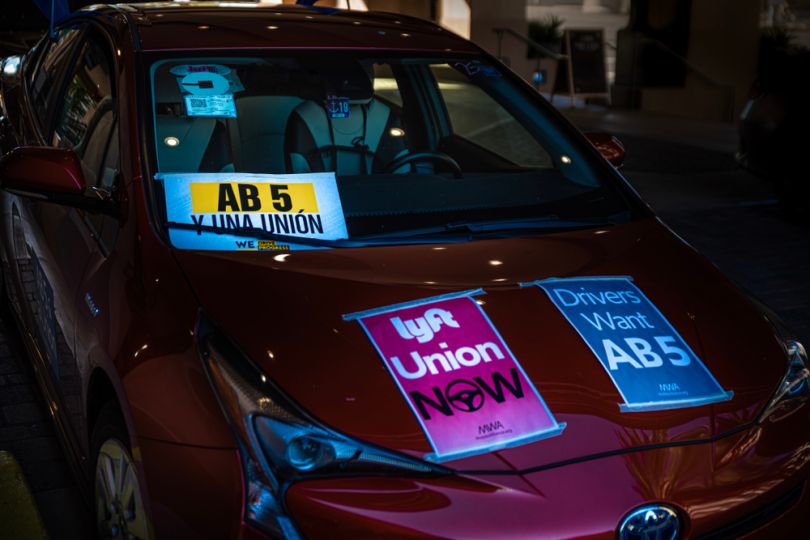
On Tuesday, a majority of Californians voted yes on Proposition 22, affecting how gig workers should be classified, and, in turn, what benefits they should receive.
This is seen as a huge win for companies that rely on the gig economy like Uber, Lyft, Instacart and Postmates. Meanwhile, critics of Prop 22 are mourning the loss.
The proposition states that app-based workers — like Uber divers and Instacart shoppers — will be classified as independent contractors, not employees. This overturns aspects of Assembly Bill 5, which went into effect this year and stated that companies can only categorize gig workers as independent contractors if they meet certain requirements. For example, companies beholden to AB 5 would need to prove that gig workers provide a service separate from the company’s main business, which made it a lot harder for Uber to claim its drivers were contractors when their business relied so heavily on them.
Proponents of Prop 22 claim that this victory will help gig workers keep their independence and give them more say in how and when they work.
“Prop 22 represents the future of work in an increasingly technologically driven economy. By a 6–1 margin, drivers in multiple polls said they wanted to remain independent contractors, not employees,” the Yes on 22 coalition said in a statement. “Prop 22 will protect drivers’ preference to be independent contractors with the flexibility to work when, where and how long they want. Prop 22 also provides drivers a new earnings guarantee along with benefits, like healthcare stipends and insurance for on-the-job injuries.”
However, critics of Prop 22 say that this is misleading. University of California–Berkeley professor and former Secretary of Labor Robert Reich said in a video that Prop 22 takes away guaranteed sick leave, healthcare, bargaining rights and minimum wage eligibility through the workers’ classification as independent contractors.
“Our organizing has always been untraditional since we aren’t classified as employees and don’t have the legal protections to organize or unionize, but we still found a way to build worker power and fight back,” the Gig Workers Collective wrote in response to the ruling. “We’re disappointed in tonight’s outcome, especially because this campaign’s success is based on lies and fear-mongering. Companies shouldn’t be able to buy elections. But we’re still dedicated to our cause and ready to continue our fight. Gig work is real work, and gig workers deserve fair and transparent pay, along with proper labor protections.”
Prop 22 was put on the ballot by companies like Uber and Lyft, which then spent over $200 million on the Yes on 22 campaign, making it one of the costliest ballot measures in Californian — and American — history. According to Ballotpedia, Uber contributed $57 million to the campaign, DoorDash contributed $52 million and Lyft kicked in $49 million. Instacart and Postmates also contributed millions of dollars toward the effort.
Follow its passage on Tuesday, amending Prop 22 will require a seven out of eight majority vote in each chamber of the California State Legislature, which translates to about a 87.5 percent majority vote. That means it will be very hard to change this law in the future. Whether the law will have an impact beyond California remains to be seen.



